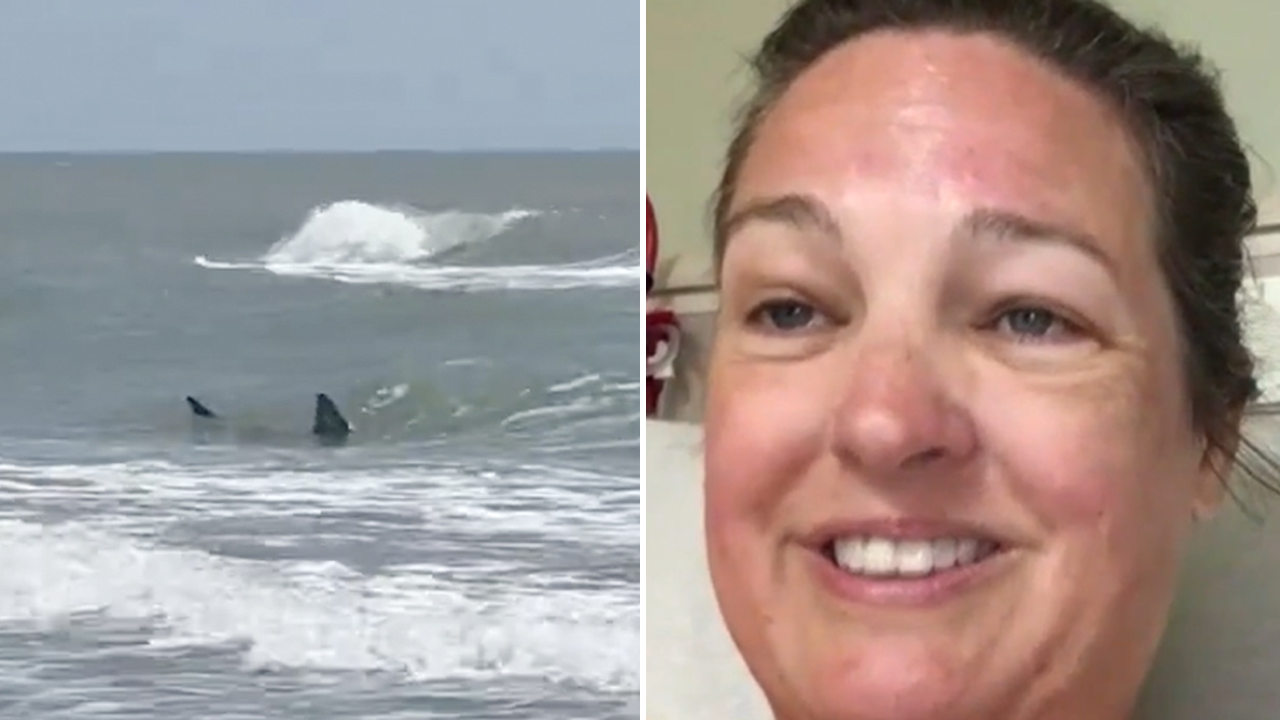Shark attacks in Bonaire may sound terrifying, but the reality is much more nuanced than what you might think. While Bonaire is renowned for its vibrant marine life and world-class diving spots, incidents involving sharks are incredibly rare. However, understanding shark behavior and knowing how to stay safe is crucial for anyone planning a trip to this beautiful island. So, let's dive deep into the facts, stats, and expert advice to help you stay informed and prepared.
Shark attack Bonaire isn't something most tourists worry about, but it's always good to be aware of the risks, no matter how small they are. Bonaire's waters are home to a variety of shark species, including reef sharks, nurse sharks, and the occasional hammerhead. Despite their presence, these creatures are generally peaceful and prefer to avoid human contact. That said, being knowledgeable about their behavior can make your underwater adventures even more enjoyable.
As we explore this topic, we'll cover everything from shark attack statistics to tips for staying safe while diving. By the end of this article, you'll have a clearer understanding of why shark attacks in Bonaire are so rare and how you can minimize any potential risks. Let's get started!
Understanding Shark Attack Statistics in Bonaire
When it comes to shark attacks in Bonaire, the numbers speak for themselves. According to the International Shark Attack File (ISAF), Bonaire has one of the lowest rates of shark-related incidents in the world. In fact, there have only been a handful of recorded shark attacks in the region over the past century. Most of these incidents were provoked, meaning the shark was either startled or threatened by human behavior.
Breaking Down the Numbers
- Less than 5 unprovoked shark attacks reported in Bonaire over the last 100 years.
- No fatal shark attacks recorded in Bonaire's history.
- Most incidents involve non-aggressive species such as reef sharks and nurse sharks.
These stats highlight just how safe Bonaire's waters are for divers and swimmers. While sharks are present, they rarely pose a threat to humans. This is largely due to their natural behavior and the pristine marine environment that Bonaire offers.
Common Shark Species in Bonaire
Bonaire is home to several shark species, each with its own unique characteristics and behaviors. Understanding these species can help you appreciate their role in the ecosystem and reduce any unnecessary fear.
Reef Sharks
Reef sharks are one of the most commonly encountered species in Bonaire. They are small, agile, and highly curious. While they may swim close to divers, they rarely exhibit aggressive behavior. In fact, many divers consider spotting a reef shark a highlight of their underwater experience.
Nurse Sharks
Nurse sharks are another frequent visitor in Bonaire's waters. Known for their docile nature, these sharks spend most of their time resting on the ocean floor. They are not considered a threat to humans unless provoked or disturbed.
Hammerhead Sharks
Although less common, hammerhead sharks can occasionally be spotted in Bonaire's deeper waters. These majestic creatures are typically shy and avoid human interaction. If you're lucky enough to see one, consider yourself blessed!
Why Shark Attacks Are Rare in Bonaire
There are several reasons why shark attacks are so rare in Bonaire. First and foremost, the island's marine conservation efforts have created a balanced ecosystem where sharks and humans can coexist peacefully. Additionally, Bonaire's waters are rich in fish and other marine life, meaning sharks have no reason to seek out human prey.
Key Factors Contributing to Safety
- Strict marine conservation laws protecting shark populations.
- Abundant food sources reducing the need for sharks to venture close to shore.
- Well-trained dive operators ensuring safe practices for all visitors.
These factors, combined with the natural behavior of sharks, make Bonaire one of the safest places in the world for diving and snorkeling.
Staying Safe Around Sharks in Bonaire
While shark attacks in Bonaire are incredibly rare, it's still important to follow some basic safety guidelines when swimming or diving in the island's waters. Here are a few tips to keep in mind:
Do's and Don'ts for Divers and Swimmers
- Do remain calm and avoid splashing excessively, as this can attract sharks.
- Don't touch or feed sharks, as this can alter their natural behavior.
- Do dive with experienced guides who know the local waters and shark behavior.
- Don't swim alone, especially at dawn or dusk when sharks are more active.
By following these simple rules, you can enjoy your time in Bonaire's waters without worrying about shark encounters.
Expert Insights on Shark Behavior
To gain a deeper understanding of shark behavior in Bonaire, we spoke with Dr. Jane Peterson, a marine biologist with over 20 years of experience studying sharks in the Caribbean. According to Dr. Peterson, "Sharks in Bonaire are incredibly intelligent and have no interest in harming humans. Most incidents occur due to misunderstandings or accidental encounters."
Key Takeaways from Dr. Peterson
- Sharks use their senses to detect vibrations and electrical signals in the water.
- They are more likely to investigate unfamiliar objects than attack them.
- Education and awareness are key to preventing unnecessary fear and misunderstanding.
Dr. Peterson's insights highlight the importance of respecting sharks and their natural habitat. By understanding their behavior, we can coexist peacefully and appreciate their vital role in the marine ecosystem.
Shark Attack Myths vs. Reality
There are many myths surrounding shark attacks, but the reality is often very different. For example, many people believe that sharks intentionally target humans, but this couldn't be further from the truth. In reality, most shark attacks are cases of mistaken identity or curiosity gone wrong.
Debunking Common Myths
- Myth: Sharks are aggressive predators. Reality: Sharks are generally shy and prefer to avoid human contact.
- Myth: Sharks attack without warning. Reality: Sharks often exhibit warning signs before attacking, such as rapid swimming or erratic behavior.
- Myth: Shark attacks are common. Reality: Shark attacks are extremely rare, especially in places like Bonaire.
By separating fact from fiction, we can reduce unnecessary fear and promote a better understanding of these incredible creatures.
Conservation Efforts in Bonaire
Bonaire has long been a leader in marine conservation, and its efforts have paid off in maintaining a healthy shark population. The island's Marine Park is a protected area where fishing and other harmful activities are strictly regulated. This has allowed shark populations to thrive and coexist with humans in harmony.
How You Can Help
- Support local conservation organizations working to protect marine life.
- Practice responsible diving and snorkeling by following all guidelines and regulations.
- Educate others about the importance of sharks in maintaining a balanced ecosystem.
By supporting conservation efforts, we can ensure that Bonaire remains a safe and beautiful destination for generations to come.
Conclusion
In conclusion, shark attacks in Bonaire are incredibly rare and should not deter you from enjoying everything this stunning island has to offer. By understanding shark behavior, following safety guidelines, and supporting conservation efforts, you can help ensure that Bonaire's waters remain a haven for both humans and marine life.
We encourage you to share this article with friends and family who may be planning a trip to Bonaire. Together, we can promote a better understanding of sharks and their role in the ecosystem. And remember, if you ever encounter a shark while diving, stay calm and enjoy the experience—it's truly a once-in-a-lifetime moment!
Table of Contents
- Understanding Shark Attack Statistics in Bonaire
- Common Shark Species in Bonaire
- Why Shark Attacks Are Rare in Bonaire
- Staying Safe Around Sharks in Bonaire
- Expert Insights on Shark Behavior
- Shark Attack Myths vs. Reality
- Conservation Efforts in Bonaire
- Biography of Dr. Jane Peterson
- Conclusion
Biography of Dr. Jane Peterson
| Name | Dr. Jane Peterson |
|---|---|
| Occupation | Marine Biologist |
| Years of Experience | 20+ |
| Specialty | Shark Behavior and Conservation |
| Location | Bonaire, Caribbean |


